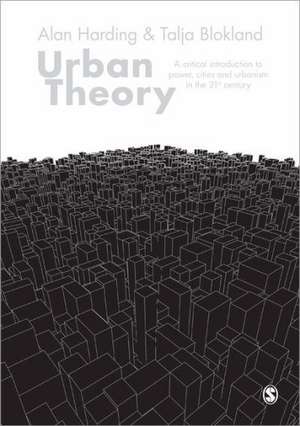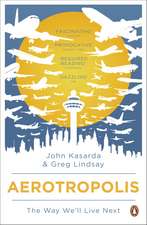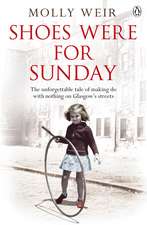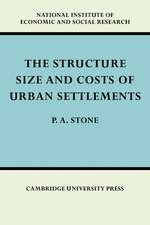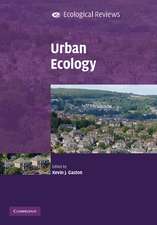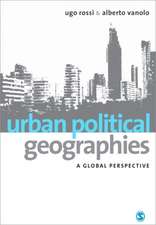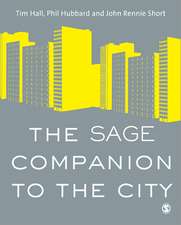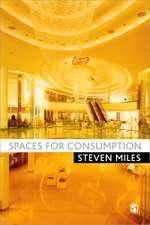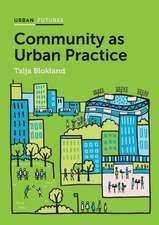Urban Theory: A critical introduction to power, cities and urbanism in the 21st century
Autor Alan Harding, Talja Bloklanden Limba Engleză Paperback – 12 mai 2014
- Relations between urban theory and modernity in key ideas of the Chicago School, spatial analysis, humanistic urban geography, and ‘radical' approaches like Marxism
- Cities and the transition to informational economies, globalization, urban growth machine and urban regime theory, the city as an “actor”
- Spatial expressions of inequality and key ideas like segregation, ghettoization, suburbanization, gentrification
- Socio-cultural spatial expressions of difference and key concepts like gender, sexuality, race, ethnicity and “culturalist” perspectives on identity, lifestyle, subculture
- How cities should be understood as intersections of horizontal and vertical – of coinciding resources, positions, locations, influencing how we make and understand urban experiences.
| Toate formatele și edițiile | Preț | Express |
|---|---|---|
| Paperback (1) | 351.94 lei 3-5 săpt. | +29.16 lei 7-13 zile |
| SAGE Publications – 12 mai 2014 | 351.94 lei 3-5 săpt. | +29.16 lei 7-13 zile |
| Hardback (1) | 1019.07 lei 6-8 săpt. | |
| SAGE Publications – 15 mai 2014 | 1019.07 lei 6-8 săpt. |
Preț: 351.94 lei
Nou
Puncte Express: 528
Preț estimativ în valută:
67.34€ • 70.31$ • 55.74£
67.34€ • 70.31$ • 55.74£
Carte disponibilă
Livrare economică 14-28 martie
Livrare express 28 februarie-06 martie pentru 39.15 lei
Preluare comenzi: 021 569.72.76
Specificații
ISBN-13: 9781446294529
ISBN-10: 1446294528
Pagini: 312
Dimensiuni: 170 x 242 x 16 mm
Greutate: 0.54 kg
Ediția:1
Editura: SAGE Publications
Colecția Sage Publications Ltd
Locul publicării:London, United Kingdom
ISBN-10: 1446294528
Pagini: 312
Dimensiuni: 170 x 242 x 16 mm
Greutate: 0.54 kg
Ediția:1
Editura: SAGE Publications
Colecția Sage Publications Ltd
Locul publicării:London, United Kingdom
Recenzii
Just when we need it most, urban theory seems to be failing us. This book explains why we need it.
Harding and Blokland address the vaunted “crisis” in urban theory with a thoughtful assessment of extant theories in terms of performance, commensurability, and critical engagement. In a conversational and lively tone, they view theories of inequality, public space, identity, power, agency, and culture through the lens of “relaxed urban theory.” Excellent overview for scholars and engaging classroom material.
Inspired by Peter Saunders’s non-spatial urban thinking, Harding and Blokland’s book provides a provocative, wide-ranging and comprehensive treatment of concepts geared to understand cities, and is a compulsory addition to any urban student’s intellectual arsenal in a period of renewed interest in urban theory.
Urban theory is said to be in a mess. Proceeding with great analytical clarity, this book introduces a relaxed definition of urban theory that enables the reader to make sense of the non-linear, variegated world of urban theory as it has developed over time and through the application of different disciplines, methods and epistemologies. In reviewing all the major conceptualisations of urban theory, Harding and Blokland provide clear insights into recent developments and the controversies and critiques they have provoked. The book is a pedagogical tour de force for students and scholars alike.
Harding and Blokland address the vaunted “crisis” in urban theory with a thoughtful assessment of extant theories in terms of performance, commensurability, and critical engagement. In a conversational and lively tone, they view theories of inequality, public space, identity, power, agency, and culture through the lens of “relaxed urban theory.” Excellent overview for scholars and engaging classroom material.
Inspired by Peter Saunders’s non-spatial urban thinking, Harding and Blokland’s book provides a provocative, wide-ranging and comprehensive treatment of concepts geared to understand cities, and is a compulsory addition to any urban student’s intellectual arsenal in a period of renewed interest in urban theory.
Urban theory is said to be in a mess. Proceeding with great analytical clarity, this book introduces a relaxed definition of urban theory that enables the reader to make sense of the non-linear, variegated world of urban theory as it has developed over time and through the application of different disciplines, methods and epistemologies. In reviewing all the major conceptualisations of urban theory, Harding and Blokland provide clear insights into recent developments and the controversies and critiques they have provoked. The book is a pedagogical tour de force for students and scholars alike.
Cuprins
1. WHAT IS URBAN THEORY?
Urban Studies and Urban Theory
What is Urban?
What is Theory?
And So What on Earth is Urban Theory?
2. URBAN THEORIES UNDER CONDITIONS OF MODERNITY
The Chicago School and Urban Ecology
Urban Geography and Spatial Analysis
The Community Power Debate
Humanistic (Urban) Geography
‘Radical' Approaches
The Legacy of Previous Theories and Their Challenges
3. FROM THE URBAN CRISIS TO THE ‘TRIUMPH OF THE CITY’
Cities as Actors in a Globalising Economy
Urban Decline and Obsolescence
Urban Economic Renaissance
Discussion
4. CAN CITIES ACT? URBAN POLITICAL ECONOMY AND THE QUESTION OF AGENCY
The Rediscovery of Agency Within Urban Theory
Introducing American Urban Political Economy
Urban Regimes and Growth Machines
The Normative Dimension
Critiques and Applications
5. SPATIAL EXPRESSIONS OF INTRA-URBAN INEQUALITIES
Inequalities Versus Differentiations: Vertical and Horizontal Paradigms
Cities as Sites of Resources: Space and Inequalities
Segregation
Suburbanization
Gentrification
Ghettoization as a Spatial Process of Marginalization
Neighbourhood Effects: Spatial Profit and Disadvantage
6. SPATIAL EXPRESSION OF DIFFERENTIATION
The Cultural Turn
The City as a Realm of Community and Lifestyle
The Subcultural Thesis
The Representational City: Public Space
Cultural Diversity: Identities in Public Space
Conclusion: Cities as Matrix of Resources
7. URBAN THEORY RECONSIDERED
The 'Crisis' in Urban Theory Revisited
The Performance of Theories
The Commensurability of Theories
Theory, Politics and Practice
A New Urban Agenda?
Urban Studies and Urban Theory
What is Urban?
What is Theory?
And So What on Earth is Urban Theory?
2. URBAN THEORIES UNDER CONDITIONS OF MODERNITY
The Chicago School and Urban Ecology
Urban Geography and Spatial Analysis
The Community Power Debate
Humanistic (Urban) Geography
‘Radical' Approaches
The Legacy of Previous Theories and Their Challenges
3. FROM THE URBAN CRISIS TO THE ‘TRIUMPH OF THE CITY’
Cities as Actors in a Globalising Economy
Urban Decline and Obsolescence
Urban Economic Renaissance
Discussion
4. CAN CITIES ACT? URBAN POLITICAL ECONOMY AND THE QUESTION OF AGENCY
The Rediscovery of Agency Within Urban Theory
Introducing American Urban Political Economy
Urban Regimes and Growth Machines
The Normative Dimension
Critiques and Applications
5. SPATIAL EXPRESSIONS OF INTRA-URBAN INEQUALITIES
Inequalities Versus Differentiations: Vertical and Horizontal Paradigms
Cities as Sites of Resources: Space and Inequalities
Segregation
Suburbanization
Gentrification
Ghettoization as a Spatial Process of Marginalization
Neighbourhood Effects: Spatial Profit and Disadvantage
6. SPATIAL EXPRESSION OF DIFFERENTIATION
The Cultural Turn
The City as a Realm of Community and Lifestyle
The Subcultural Thesis
The Representational City: Public Space
Cultural Diversity: Identities in Public Space
Conclusion: Cities as Matrix of Resources
7. URBAN THEORY RECONSIDERED
The 'Crisis' in Urban Theory Revisited
The Performance of Theories
The Commensurability of Theories
Theory, Politics and Practice
A New Urban Agenda?
Notă biografică
Descriere
This interdisciplinary introduction to urban theory explains how the concepts that help us understand the contemporary urban experience have developed and been applied. It discusses a wide range of work - within political science, economics, geography and sociology. Reviewing the core issues in urban theory, the authors demonstrate different ways of understanding urban inequalities and social justice for all students and researchers of the city.
